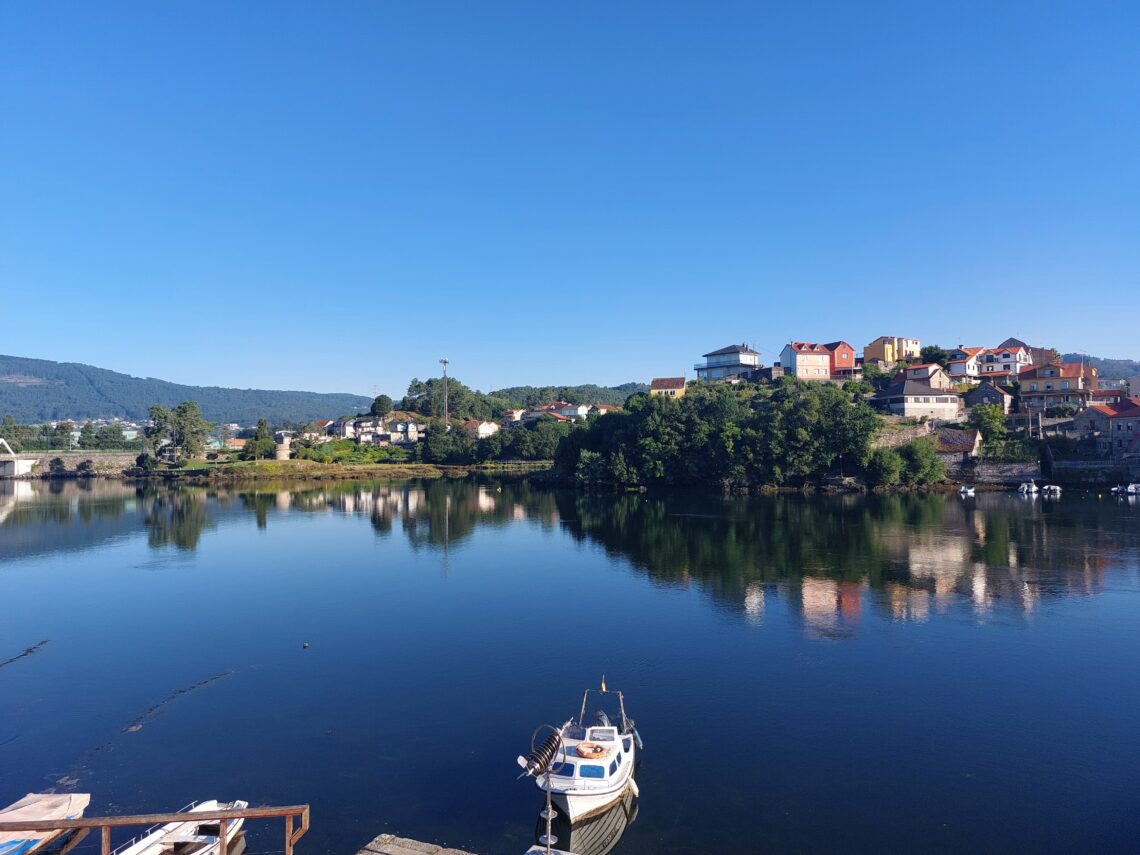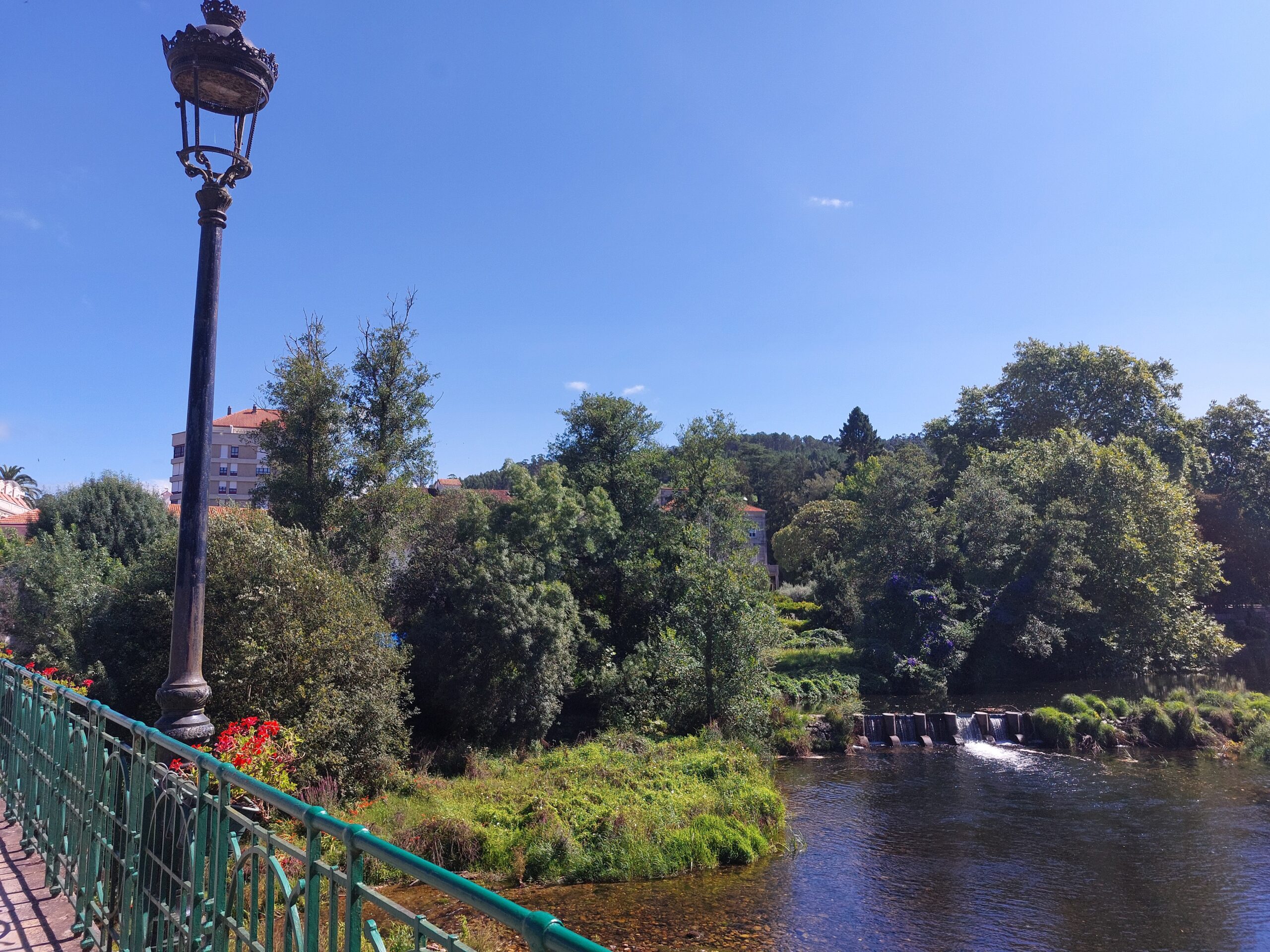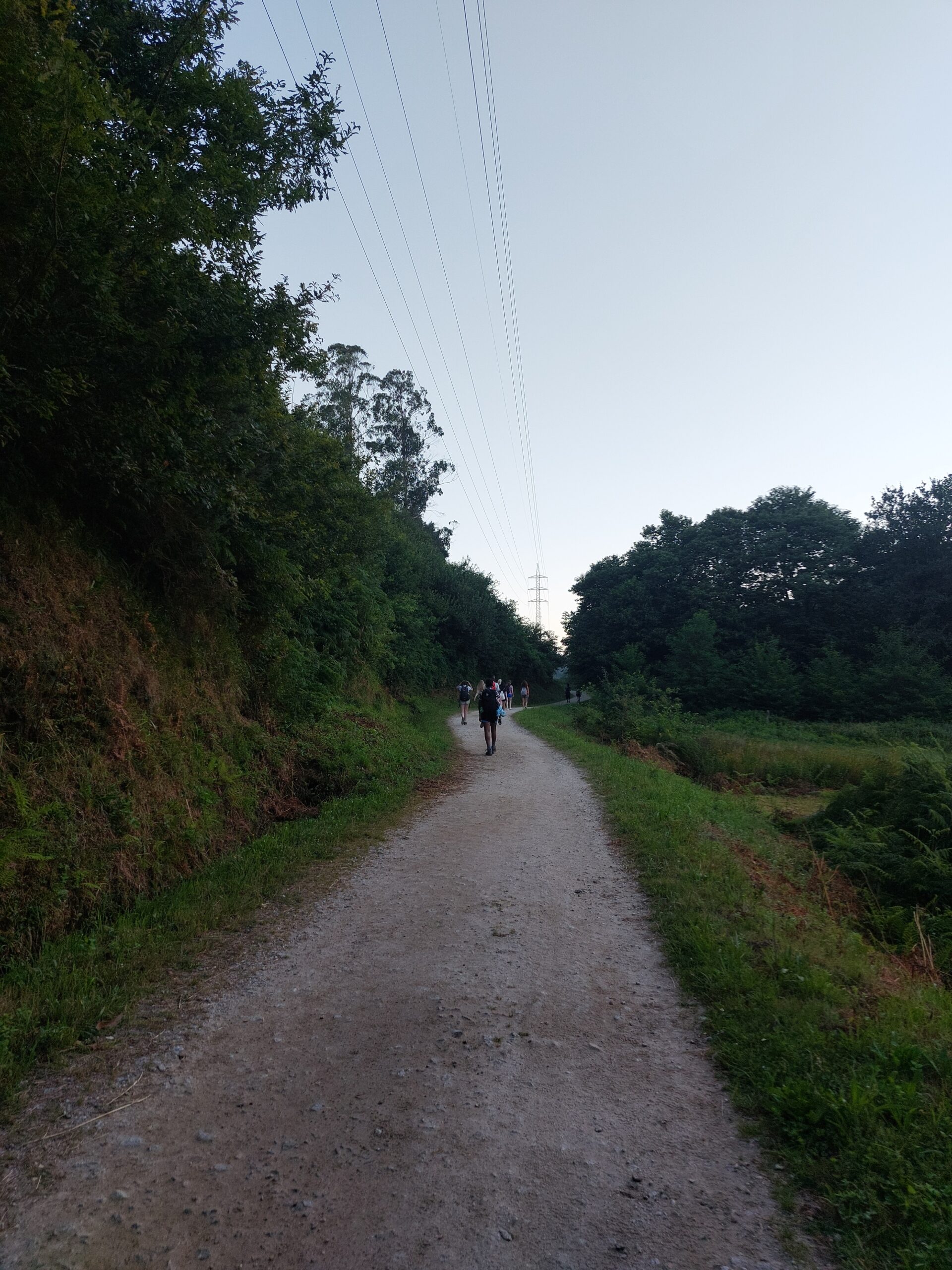
Slowing down with St James: what the Camino taught me
In our second article on the Way of St James, Yana Laszcziw explains how learning to slow down helped her engage with the humanity of others and ask questions about her own life direction.
Less than a month ago I landed in Portugal with a group of fellow travellers from Norfolk, in the East of England.
We had arrived to follow the Portuguese part of the Way of St James, the Camino as it’s usually known, walking the 120 kilometres from Valença do Minho to Santiago, with the famous yellow arrows and golden shells and the word of locals to guide our path.
Even as I walked on the first day, one question rose above all the others: “Why?” Why walk the Camino, sweating under the midday sun while your muscles ache and feet tire more with every step?
The answer differs from pilgrim to pilgrim. Some are prompted by people who have gone before, while many seek a higher purpose that only time and reflection can reveal. For others the goal might simply be to cast off bad habits, as I learned from Emilio Estevez’ film The Way, where two of the characters aim to lose weight and quit smoking.
When I first agreed to walk the Camino, I thought my answer to the question was simple. It was just an opportunity to meet new people and gain fresh experiences, while soaking up the sunlight in a hot country. What is there not to like in that?
But upon reflection, there must have been more to it. Was I subconsciously influenced by stories I had heard or films I had watched? Perhaps a recent trip to Brussels, where I saw the golden scallop shell – the symbol of the Camino – for the first time, planted a seed.
Could I simply have been enticed by the thought of exploring a country unknown to me? I still don’t know why I made the choice to undertake the pilgrimage, but I am profoundly grateful that I did.

As days were spent walking through woodlands, past industrial estates, by brooks and thermal baths, I realised what the pilgrimage represented for me.
It was a chance not only to develop my spiritual faith but to also understand why I think what I think and do what I do. I needed time to step back from the day-to-day run of things, to ground and remind myself of what I deemed important in my life. The Camino acted as a waypoint on my journey through life, giving me a chance to re-evaluate my choices and realign my goals, with God as my focus.
Walking so many kilometres a day, there were bound to be moments of silence, even when travelling as part of a group. During those instances, random aspects of my life swirled in my prefrontal cortex and, perhaps more significantly, in the depths of my soul.
I found myself dwelling on recent decisions and wondering if I had chosen the right university degree. I even spent more than a few moments analysing my behaviour on the pilgrimage itself.
I can pinpoint the moment when I realised the person who began walking the Way in Portugal had been replaced by someone else, another me.
My behaviours and attitude started to shift as the days passed, after conversation with other pilgrims and deep reflection on my past and present self.
I observed those around me, focusing on their positive traits. What qualities did I see in them that I would like to see in myself? I glimpsed humility in most and concluded that patience is a virtue I should adopt in every aspect of my life.
I witnessed some of my group taking turns to go at a slower pace to accompany older pilgrims along the route. Watching everyone else leave you behind would not have been easy, and I admired them for their kindness and sheer force of will.

I decided that I should open my mind to new opinions and outlooks, as stubbornness is rooted in pride, a vice I thought I had left behind years ago but which always seems to find a way to catch us up.
Up to this point in my journey, I had been walking to ‘beat the midday sun’ and was therefore not getting as much out of the pilgrimage as I had initially aimed to.
One of the only views I could remember was that of my trainers pounding the gravel, soil, and pavement. I deemed this a test of my stamina, and, like an Olympic athlete, I was determined to outdo myself.
Once I realised I wanted to enjoy the experience more than prove my fitness level was up to par, I accepted that ‘beating the midday sun’ was not what the Camino is all about and I forced myself to change.
For me, this change came in the shape of walking at a slower pace, with the least able members of my group. I got to know those around me, whom I had previously not interacted with, and took in all the scenery along the route.
In the end, this newfound mindset did not cost me anything. I did not suffer in the sun for longer or die of thirst. I merely enjoyed the journey more than I had at the beginning, while taking the feelings of others into consideration.
My personal development between day one of the trip and the end felt significant. Despite returning to reality with even more questions than I had before the journey, I developed a new outlook on how best to tackle them.
Questions revolving around my future career, and even lifestyle choices, are now at the forefront of my mind. Should I take a year to travel around the world in a battered, old caravan or should I continue straight into a full-time job once my degree is over? If I continue straight into the world of work, will I choose the right occupation?
Fortunately, a prayer I have known for years has recently surfaced and I am trying to embrace its message: that I must have the serenity to accept the things I cannot change.
This has brought me peace, as though I were tired of fighting a losing battle and must now accept that I cannot change what I do not have the power to influence.
This experience has brought me closer to God in ways I cannot express, and I look to the future with hope, something I rarely did before walking the Camino.
The experience felt as though it had lasted both a whole lifetime and a single day, as time seems to work differently while walking the Camino. The days merge into one, with each hostel taking on the same aspect in your mind, and every scenic path blending.
While I am proud of the new person I have become on the Camino, I would appreciate the chance to explore the other routes to develop my character even more. What might the Camino Francés teach me next year?
Like what you’ve read? Consider supporting the work of Adamah by making a donation and help us keep exploring life’s big (and not so big) issues!
Yana Laszcziw
Yana Laszcziw is a university student in Chester, England, studying Forensic Biology. She has one more year to decide whether her future career path leads into the world of crime scene investigation or if she would rather find a more abstract way to explore the world.


One Comment
Barbara Laszcziw
Profound thoughts from a daughter whose words have given her mammy insight to a beautiful person, a daughter of God.